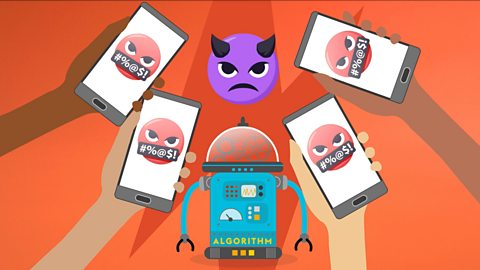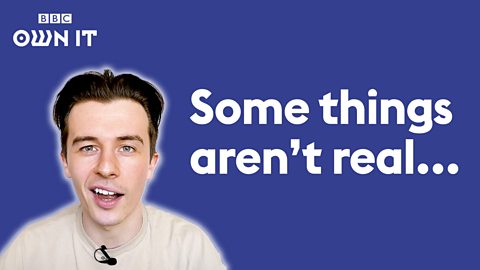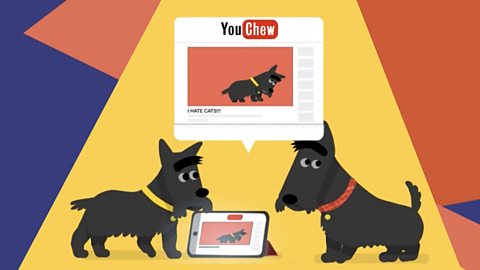Video & Article Summary
Spoken word artists talk about fake news, clickbait and dodgy links. They explain that things aren't always how they first appear to be online, and how information you see can often be misleading to tempt people to click on to pages.
A supporting article giving tips on how to deal with fake news stories
Fake news
Spoken word artists share their experiences of online safety, to help deal with trolls, fake news, clickbait and scams. Jay helps to find the truth and tell fact from fake.
Clickbait
Felix helps to find the truth and tell fact from fake. He says websites are like fishermen - often they want to attract you with sensational images and misleading headlines and reel you in so that you read, like and share.
He warns to be careful about what is read online and make sure students talk to a trusted adult if they feel confused or unable to tell the truth.
A poem which shares the experiences of dodgy links. Chaya explains why we should think before we click.
5 tips to deal with dodgy news stories online
1. Don't believe the hype
Fake news is often designed to be shared far and wide, so just because a lot of people are sharing it, that doesn't mean it's necessarily true.
2. Cross-reference the source
Do you know the website? Do they give sources for their information and have you heard of them and trust them?
3. Think about what you see
Fake news stories often have eye-catching images or sensational headlines - think about it, are they just trying to grab attention?
4. Question what the purpose is
Think about why someone might have written the story. Could they be looking to stir up trouble or misinformation?
5. Think before you share
If you have any suspicion about what you're reading, help stop the spread of fake news by not hitting the share button.
More on: Managing online information
Why does the internet behave badly? videoWhy does the internet behave badly?
A video exploring how algorithms work, and how to counter seeing nasty comments online.

What to do if you see something upsetting online. videoWhat to do if you see something upsetting online
An article offering students tips and advice on what to do if they see something upsetting online

How images and videos can easily be manipulated. videoHow images and videos can easily be manipulated
An animation showing how Will's video from his YouChew channel is edited to make him look silly.
